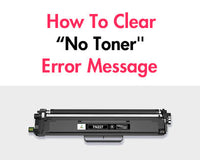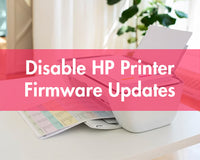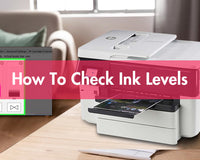Nowadays, printing a tattoo stencil is becoming more and more popular. But for first-time enthusiasts who want to try it, printing tattoo templates is still a bit complicated. In this blog, I will introduce you to ways to create a tattoo stencil, to print a tattoo stencil, to prepare skin, and to remove a tattoo stencil from skin.
Overview
To begin, let’s take a look at the entire tattoo creation process.

To put it another way, you need to create a tattoo design first. There are two main ways: hand-drawing and digital design. If you choose to hand-draw your design, you can prepare the stencil transfer once the tattoo artwork is complete. If you choose to draw the design digitally, then you’ll need to take one more step - print your design. There are also two main ways: print design on a thermal printer or print design on a regular printer. After that, you can also prepare the stencil transfer. I will clarify every step in detail.
Two Ways to Create Tattoo Design
There are two main ways to draft the stencil art. One is hand-drawing. For artists who choose this “old-school” method, they enjoy controlling the pen fully and drawing a beautiful image with it. The other is digital designing. This method is faster and more efficient than hand drawing.
Hand-drawing VS Digital Design
Both methods have their pros and cons. Which one to choose depends on your preference.
|
Types |
Pros |
Cons |
|
Hand-Drawing |
1. Convey the authentic feel of the pen tip and an immersive sense of creation 2. Lines are more artistic |
1. Tattoos are hard to modify. |
|
Digital Design |
1. Can undo endlessly and edit by layers, which makes changes easy 2. Can share your work in the cloud for remote approval |
2. The cost of the device is high |
H3: Hand-drawing Paper VS Dedicated Tattoo Transfer Paper
|
Hand-drawing Paper |
Dedicated Tattoo Transfer Paper |
|
|
|
|
1. Bottom layer: flat and hard work surface 2. Carbon paper: colored side facing up 3. Transfer paper: cover the carbon paper (semi-transparent thin paper used to hold the design) 4. Design paper: This is an ordinary paper with patterns. You need to make the side with the pattern face down
|
1. Tracing paper: Smooth surface ensures smooth sliding of the thermal head. 2. Protective paper: This paper prevents the drawing sheet from accidentally touching the toner sheet and causing stains. Remove before tracing. 3. Toner paper: This is also called the transfer layer. When it is pressed, the toner will be transferred to the back of the tracing paper. 4. Bottom Yellow paper: This paper protects the carbon paper.
|
You may be wondering if you can draw directly on the dedicated tattoo transfer paper. Generally, we do not recommend this. Because the tracing paper is smooth, it is difficult to draw on. And there is no way to modify it. If you make a mistake, you can only draw it again on a new transfer paper. Most importantly, you must draw the mirror image directly.
Hand-drawing
Step 1: Design and Mirror Processing
1. Draw the tattoo design on ordinary paper. The lines need to be thickened to 1.0-1.5pt, because thin lines are easy to break when transferred.
2. Be sure to turn the paper over. In this way, the pattern presented on the transfer paper is mirrored, and the direction of the pattern can be correct after transfer to the skin.
3. For complex patterns, cross-positioning marks can be added to facilitate the alignment of multiple parts.
Step 2: Stack and Fix the Paper
1. Stack from bottom to top in the following order: bottom layer, carton paper, transfer paper, and design paper
2. Fix the four corners with masking tape to prevent shifting
Step 3: Tracing
Trace the design with a ballpoint pen at a constant speed, and increase the pressure in key areas.
Step 4: Separation and Trimming
1. Remove the tape and carefully separate the paper
2. Discard the design and carbon paper
3. The toner pattern is printed on the back of the transfer paper, cut the design outline is cut along the edge
Digital Design
With the development of technology, many people have discovered a new way of drawing - digital design. People will use software such as Procreate, Photoshop, and more.
Now, with the rise of AI, many people use AI to generate their favorite patterns like BlackInk AI or Hottattoo.AI.
Digital design is very fast and convenient. But there are also some tips to note. If you ignore these things, you will make a mistake:
1. Format: PNG/JPG (resolution ≥ 203dpi)
2. Lines: pure black (RGB 0,0,0), thickness ≥ 1pt
3. Remove background: remove all white backgrounds (keep transparent channels)
4. Mirror flip:
PC: Press Ctrl+T in Photoshop → right-click and select Flip Horizontal
Mobile: Turn on the "Mirror Mode" switch in the Phomemo App
How to Print a Tattoo Stencil on a Thermal Printer
1. Remove the yellow bottom paper. Note that the adhesive part of the paper should be kept intact.
2. Remove the white protective paper.
3. Set printer: Connect the device to the printer and select tattoo stencil paper in the driver or app.
4. Power on the printer, make sure the white tracing paper is face down and the transfer paper is face up.
5. Insert the paper, and then the printer will feed the paper automatically.
6. Select “Tattoo Stencil Paper” in the driver
7. Adjust density level: Dark Skin/Thick Lines: Density 3; Light Skin/Thin Lines: Density 2
8. Click the "Print" button on your device/app.
9. After printing, gently peel off the white tracing paper.
How to Print a Tattoo Stencil on a Regular Printer
If you don't have a thermal printer, you can also use an inkjet printer to print a tattoo stencil. You need to buy special inkjet temporary tattoo paper and water-based dye ink.
The way is similar to printing a tattoo on a thermal printer.
|
Operation Steps |
Thermal Printer |
Inkjet Printer |
|
Mirror Image of Design Draft |
Must be manually flipped in the design software in advance |
Check “Mirror Image” on the driver when printing |
|
Load Paper |
The white tracing paper is face down |
The white tracing paper is face down |
|
Print Settings |
Select “Tattoo Stencil Paper” + adjust the density level |
Select “Glossy Photo Paper” + high quality |
|
Output Time |
Transfer within 10 minutes |
Let it stand for 2 minutes to dry the ink |
How to Prepare Skin for Stencil Application
|
Comparison Dimension |
Hand-Drawn Carbon Copy Transfer |
Thermal Printer Transfer |
Inkjet Printer Transfer |
|
Degreaser Required |
75% alcohol wipes |
75% alcohol wipes |
Alcohol-free baby wipes (ink dissolves easily) |
|
Degreasing Strength |
Wipe in one direction 3 times |
Wipe in one direction 2 times |
Lightly press once (prevents excessive skin dryness) |
|
Drying Time |
Air dry for 15 sec |
Air dry for 30 sec |
Air dry for 60 sec |
|
Transfer Medium |
Speed Stick deodorant (solid stick) |
Water-based gel (liquid) |
Water-based gel + ice pack cooling |
|
Pressing Time |
20 sec (30 sec on joints) |
20 sec |
30 sec with ice pack |
|
Skin Sensitivity Treatment |
Apply Vaseline after degreasing (prevents allergic reaction to purple dye) |
No extra protection needed |
Cold compress to reduce irritation |
|
Environmental Requirements |
Humidity <70% RH |
Humidity 40-60% RH (prevents smudging) |
Humidity 40-80% RH |
How to Remove Tattoo Stencil from Skin
The stencil can be easily removed, even if it has completely dried. Just wipe the skin with the “Tattoo Stencil Eraser” in a circular motion until the stencil is gone. Clean the skin with distilled water when the stencil is removed; do not use soap.














